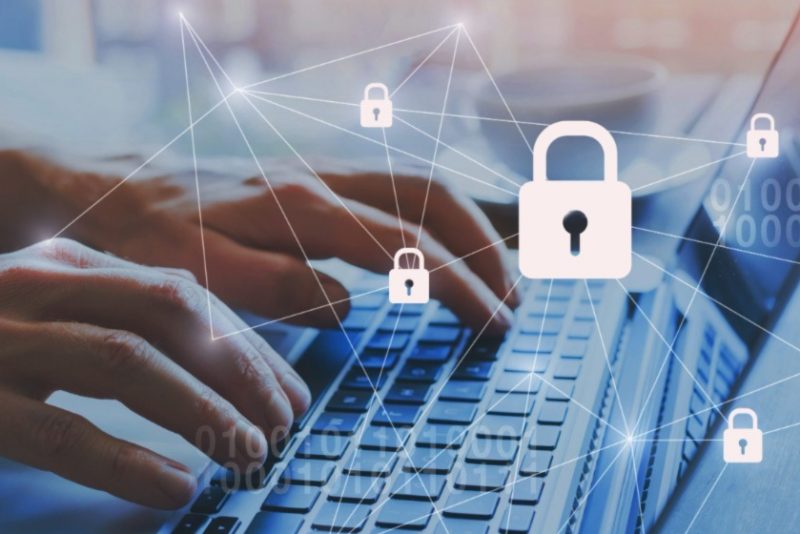Data breaches are an unavoidable reality that all organisations, large or small, must be prepared for. While data breaches are synonymous with cyberattacks,it’s important to understand that they’re not quite the same thing. A cyberattack is any attempt to gain unauthorised access to a network or system. Whilst a data breach specifically refers to the unlawful gain of data. Not all cyberattacks result in data breaches, but all data breaches are a consequence of successful cyberattacks.
High-profile incidents, such as the breach at Dell, where hackers stole the personal details of 49 million customers, highlight the urgent need for robust cybersecurity practices.
In the light of recent data breaches, what can we learn about cybersecurity threats today? And what practical steps and strategies can you put in place now to defend against them?
Understanding the impact of data breaches
Recent breaches like the one at Dell illustrate the increasing frequency and sophistication of cyber-attacks, as well as the need to understand the complexities of the digital threat landscape. Cybercriminals are becoming more sophisticated and can exploit any piece of data, not just financial information. Personal details like names and email addresses are increasingly used to launch phishing scams and other malicious activities.
According to the latest reports, half of businesses (50%) and around a third of charities (32%) report having experienced any kind of cyber security breach or attack in the last 12 months (Figure 4.1). This accounts for approximately 718,000 businesses and 65,000 registered charities the past year alone, costing businesses millions in damages and lost revenue.
The bigger picture: protecting all data
A key lesson from the Dell breach is the importance of safeguarding all forms of data. It’s not just credit card numbers or social security details that are at risk. Information such as email addresses, names, and order details can be equally valuable to cybercriminals. This data can be sold on the dark web or used in identity theft and social engineering attacks, putting individuals and organisations at significant risk.
Shared responsibility in cybersecurity
Cybersecurity is a shared responsibility involving everyone from your organisation’s employees to your customers and partners.
For organisations:
- Invest in advanced threat detection systems: Implement robust cybersecurity measures to detect and mitigate threats early.
- Conduct regular security audits: Regular audits help identify weaknesses in defences and ensure compliance with industry standards.
- Provide ongoing training to employees: Continuous training helps employees identify potential threats such as phishing emails and understand the importance of cybersecurity best practices.
- Develop a well-defined incident response plan: Establish a clear incident response plan to enable swift and effective responses to breaches, minimising damage and protecting data.
For customers:
- Be cautious when sharing personal information online: Only share personal data with trusted websites.
- Use strong passwords: Ensure passwords are complex and unique for different accounts.
- Stay informed about cybersecurity threats: Awareness is key to safeguarding personal data from emerging threats.
How to prevent data breaches
If you’re a business looking to minimise the risk of falling victim to data breaches, consider implementing the following measures:
- Regularly update and patch systems: Ensure your software and systems are up to date to guard against vulnerabilities.
- Implement multi-factor authentication (MFA): Adding multiple layers of security significantly reduces the risk of unauthorised access to sensitive information.
- Educate and train employees: Continuous training helps employees identify potential threats and understand the importance of cybersecurity best practices.
- Conduct security audits: Regular audits help identify weaknesses in defences and ensure compliance with industry standards.
- Develop a response plan: Establish a clear incident response plan to enable swift and effective responses to breaches, minimising damage and protecting data.
- Encourage secure online practices: Emphasise the use of strong, unique passwords, awareness of suspicious emails, and proactive monitoring of account activity.
Building a more secure digital future together
Data breaches like those seen at Dell serve as reminders of the vulnerabilities facing many businesses. By taking proactive measures and collaborating effectively, we can create a secure digital environment and safeguard valuable data from the threat of cybercrime.
Our dedicated team of experts at ANS are available to assist with your security needs. As an award-winning tech company, the team are equipped to deal with all enquiries no matter how big or small, demonstrated by our high customer satisfaction, evidenced here. To learn more about how ANS can help protect your business, go to our Security page to find out how our Managed Security Services can help.





